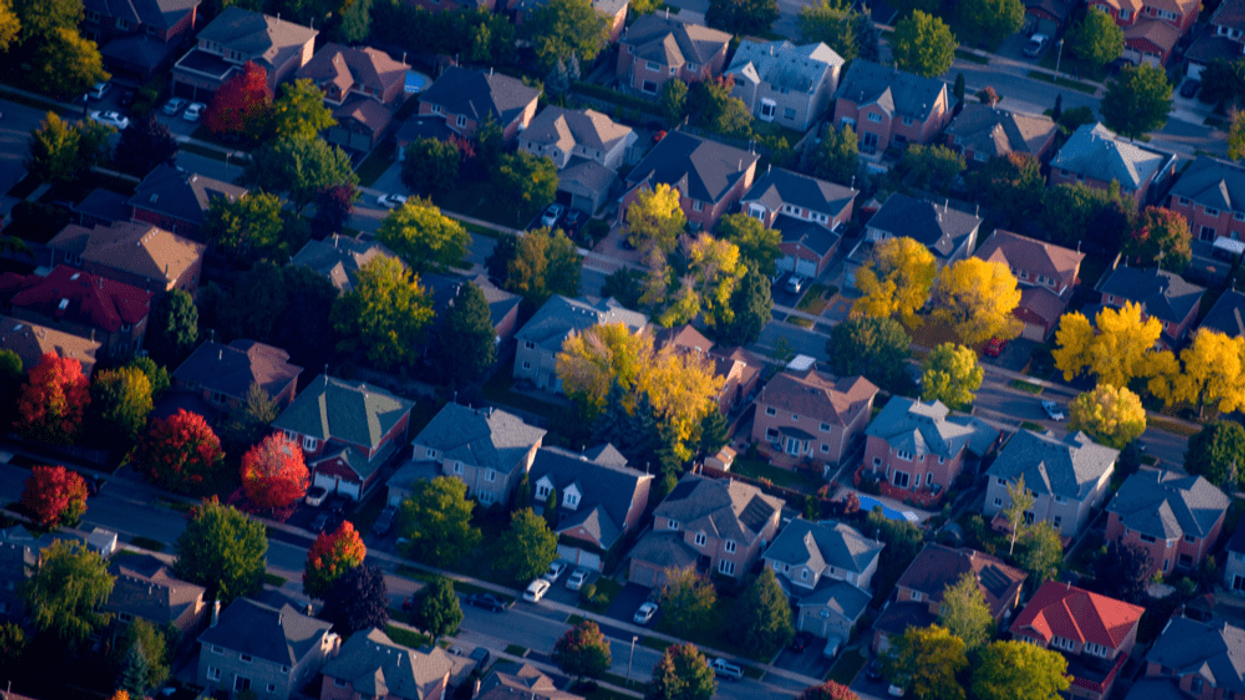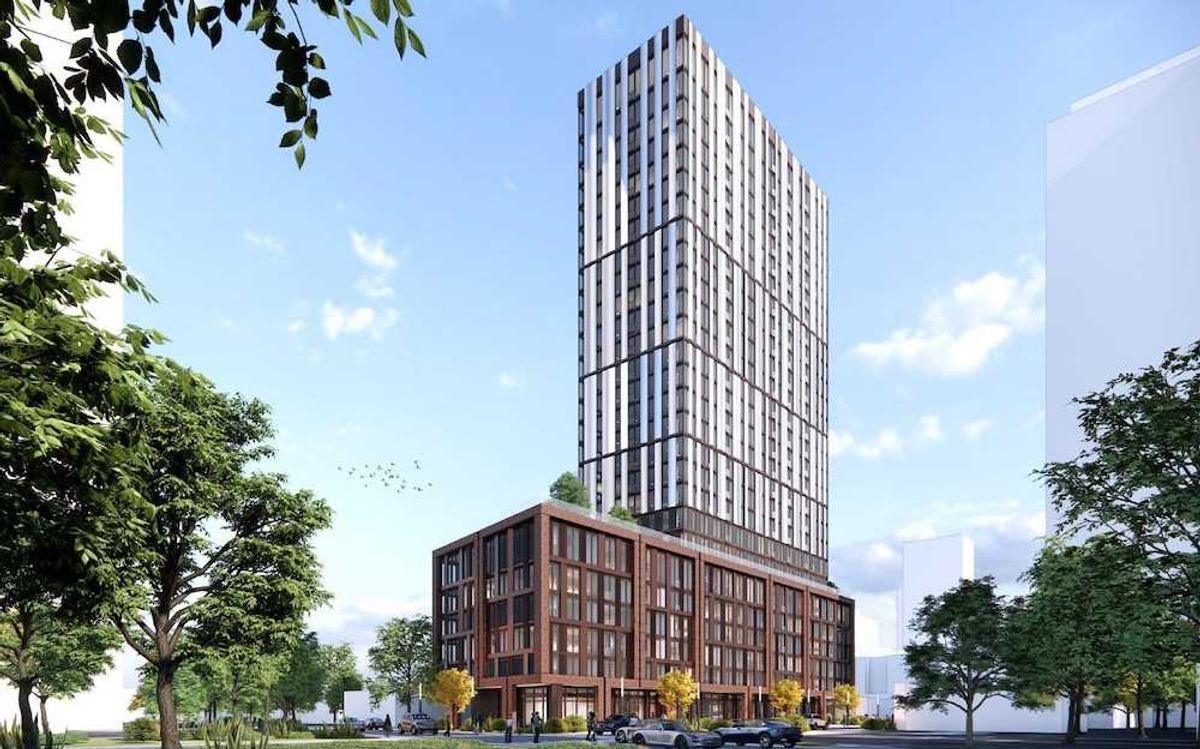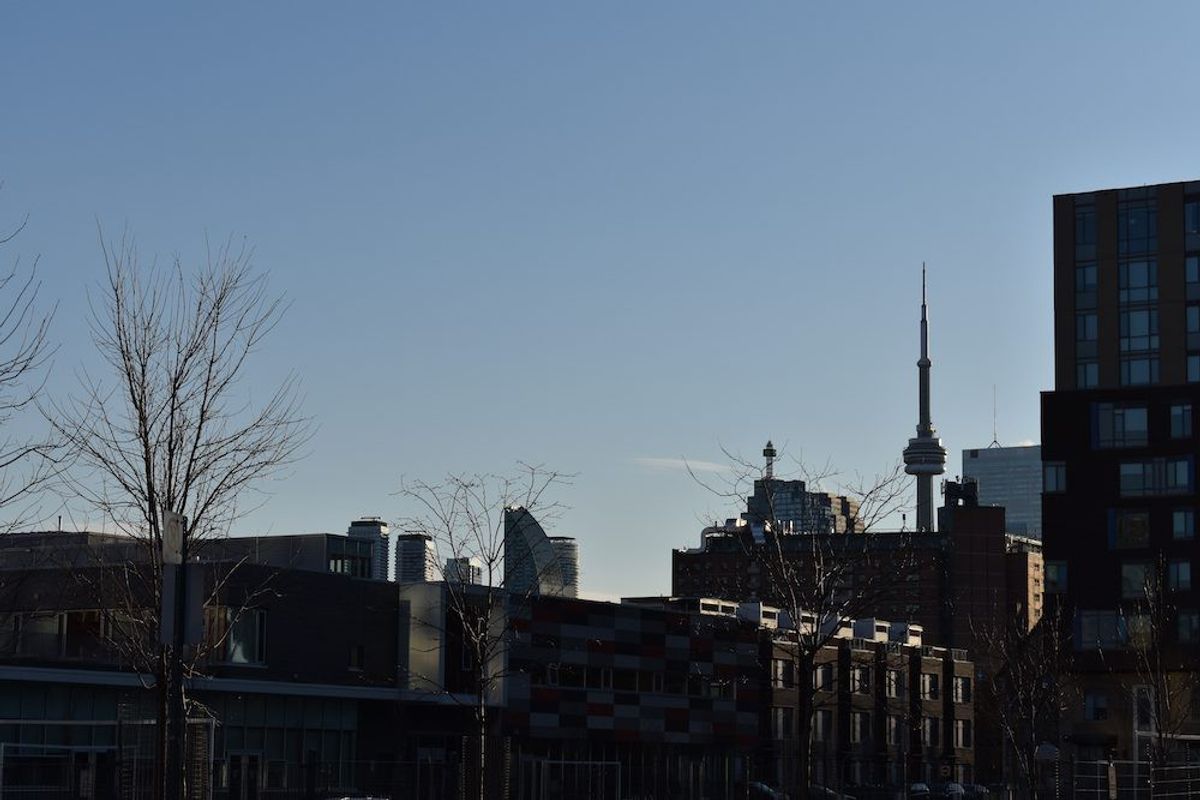As demand remains strong and inventory continues to stay low, home prices across Canada are expected to rise even more than previously projected.
The Royal LePage House Price Survey, released on Tuesday, is forecasting a 15% increase in Canada's aggregate home price in the fourth quarter of 2022. This is up noticeably from the 10.5% increase that was predicted for 2022 back in December of last year.
This revised number comes after Canada's aggregate home price saw a 25.1% year-over-year increase during the first quarter of 2022, rising to a staggering $856,900. This is the highest increase on record since Royal LePage began tracking aggregate prices, the real estate company says.
Although it may not seem like it, President and CEO of Royal LePage Phil Soper says that there are some signs that the market is finally starting to ease up.
"Entering 2022, we had anticipated a strong first half, and moderating real estate markets thereafter," Soper said. "Call it buyer fatigue or easing demand, these periods of uncomfortably high home price appreciation do run their course. We are seeing the first signs of moderation in some regions, as more inventory is becoming available and competition eases slightly. The first quarter of the year was so strong, however, that we are bumping up our 2022 outlook. And, home prices will continue to climb in the months ahead as a result of our relentless low supply-high demand imbalance."
A Minor Easing of Demand
A further, albeit somewhat mild, part of that easing is courtesy of the recent increases in the Bank of Canada's interest rate. With the 0.5% increase introduced earlier this month and continued increases to the overnight rate expected throughout the rest of the year and into 2023, Royal LePage is predicting it will cause a drag on demand.
"It is worth noting that most Canadians with higher loan to value mortgages have successfully passed the stringent federal requirements of the OSFI mortgage stress test -- they have proven that they can manage significantly higher rate increases than we anticipate they will see," Soper said.
The median price of a detached home in Canada is continuing to near the $1M mark, hitting $906,1000 during the first quarter of 2022. This marks a 26.7% increase year over year. Condominiums on the other hand are up 19.7% annually to a new median price of $612,900. Although some markets are seeing a slowing of demand, Soper notes that the continued tight housing supply means that "multiple offer scenarios remain the norm in most communities." In fact, during the first quarter of the year, four Ontario cities -- Barrie, Cambridge, Kitchener-Waterloo, and Oshawa -- saw their median single-family detached home prices pass the $1M mark for the first time.
In the Greater Toronto Area, the number of offers per listing is also dropping, but that doesn't mean prices are. The aggregate home price jumped 27.7% year over year to a new high of $1,269,900, with single-family detached homes hitting $1,588,900 -- a 29.7% annual increase. Prices in the GTA are expected to rise even more than the national average, with a 16.5% increase predicted in the fourth quarter of 2022.
Greater Vancouver has also seen a slight drop in demand, Randy Ryalls, general manager of Royal LePage Sterling Realty noted. But with listings slow to increase, prices are still ballooning. Overall home prices are up 18.2% year over year to $1,368,600, with single-family detached homes hitting a median price of $1,870,100.
"Greater Vancouverremains in a strong seller's market, with many listings being absorbed quickly," Ryalls said. "These market conditions are self-perpetuating. Lack of supply causes hesitation in sellers who hold off listing their home until they can buy."
Even Calgary, which has seen slower growth compared to Canada's other major markets, was up 13.3% during the first quarter of the year, bringing the aggregate home price up to $612,000. A significant portion of demand in the city, however, is coming from Ontario buyers looking to put down roots elsewhere.
"Calgary's condominium segment has seen a rush of new demand since the start of this year, as supply in the single-family segment dwindles and prices continue to climb," said Corinne Lyall, broker and owner of Royal LePage Benchmark. "Condos are an attractive option for those looking to enter the market at a more affordable price point, and I expect sales will continue to rise in the coming months."
New Housing Policies Not Inspiring Confidence
Governments at all levels have introduced a number of proposed housing policies in recent weeks with the aim of combatting rapidly rising prices. The federal government, for one, spent a significant portion of its 2022 budget putting forward several initiatives and new legislation that it plans implement, including more than $10B to support affordable housing, and a temporary two-year ban on foreign buyers. Although Royal LePage does not expect the foreign buyers ban to "provide material relief," Soper expressed optimism at the federal government's intention to ensure millions of new homes are built.
"By providing municipalities with funding to accelerate planning and delivery processes, the government is meaningfully helping the process overall, which is a welcomed step in the right direction," Soper said.
In Ontario, the provincial government tabled a new housing bill that largely focused on speeding up the development process as a means to get more housing built. It also proposed increasing the Non-Resident Speculation Tax from 15% to 20% and applying it to the entire province.
"While new policies aimed at improving real estate market conditions for buyers will take years to produce results, I commend the Ontario government for taking action to increase supply through needed densification," said Karen Yolevski, chief operating officer, Royal LePage Real Estate Services Ltd. "In Toronto, this will give young homebuyers hope that they will be able to purchase a property in the future. Potential homeowners should not expect relief from the tax increase applied to non-residents, as foreign buyers make up a small percentage of the total market."
In British Columbia, Minister of Finance Selina Robinson brought forward legislation that would create a Homebuyer Protection Period. This would give homebuyers a five-day cooling off period during which they can secure financing, complete a home inspection, and even reconsider their offer. Although meant to protect buyers, Ryalls says that it's causing uncertainty among industry professionals and consumers alike.
"With few details revealed, and no clear indication of how this policy will be implemented or monitored and by whom, it is difficult to predict what impact this will have on the market," Ryalls said. "We believe that with the collaboration of industry leaders, the province would have been able to devise a policy that better serves Canadians during one of the most important decisions of their lives."
A mandatory pre-offer period that would allow buyers time to conduct due diligence, Ryalls says, would be more beneficial and wouldn't pose the possible problem of causing a supply backlog like the Homebuyer Protection Period could.




















